Episode 8
Productivity Part 3
Kathy starts out Part 3 on productivity with the question “Just how important is productivity, really?” We discuss our responses, plus talk about how to set realistic expectations to meet your goals.

About this Episode
Kathy starts out Part 3 on productivity with the question “Just how important is productivity, really?” We discuss our responses, plus talk about how to set realistic expectations to meet your goals.
Transcript
Kathleen Fealy 0:06
Alright, let me ask you a question.
Molly McBeath 0:08
Okay.
Kathleen Fealy 0:12
How important is – and this is gonna be blasting most everybody in the business world. But how important is productivity really? Because I mean, I think a lot of people beat themselves up because they don’t feel like they’re productive enough or they’re getting enough stuff done. And yet they are accomplished and they are finishing projects and stuff. It’s just they may have the personality where you know they’re constantly you know, there’s always a thing about perfectionism, which sometimes works its way into the concept, I think, of productivity because there’s always, you put something out and then you’re still like, “Oh, but I could have done this better” or “let me change this” or “let me adjust that to make it better”. So you may never feel totally productive. So is productivity overrated?
Molly McBeath 1:16
Hello, and welcome to Yes But However, a podcast about marketing, business, and real life. My name is Molly McBeath with my co-hosts Kathy Fealy and Betsy Muse. This episode is the final segment of our three-part conversation on productivity, where we ask the question: is productivity overrated? We also talk about how important it is to set realistic goals and how perfectionism gets in the way of getting stuff done. If you missed the first two segments, please check out our first… If you missed the first two segments, please check out our previous two episodes on yesbuthoweverpodcast.com Here’s part three of our conversation.
Betsy Muse 1:58
I don’t think productivity is overrated. I do believe though, that people need to really assess how much they can reasonably accomplish in a given period of time and only assign themselves that which they can accomplish in that time, because I do tend to over-list. I create lists that are far too long. And that can, it can be destructive. It can really set you off. You can get a lot done but what you’re looking at are the things you didn’t get done.
Molly McBeath 2:43
That’s the trap I fall into.
Betsy Muse 2:44
Yeah.
Molly McBeath 2:45
All the things I didn’t get done today.
Betsy Muse 2:46
Right. I think the important thing is to make sure, and if you do make those lists, make sure you prioritize what’s really important.
Molly McBeath 2:57
Which is part of why oh, so I guess this is a productivity thing that I do that I didn’t associate with this conversation, but now it makes so much sense. Betsy does quarterly business reviews, and I do them monthly, which I don’t always remember to do to be completely honest. But I try to sometime at the beginning of every month, sit down and I have a little list of where the month before I made goals for what I would like to get done. For instance, what I would have wanted to get done in June, and then at the beginning of July I will go back and I will look at that and say Well, what did I get done? What can be crossed off? What was just a bad idea and this is kind of bullet journal stuff. What was a bad idea so I should just cancel it, it’s never gonna get done? And things that need to be migrated to move to July or something came up and that’s going to be a fall project now for a good reason. And, but then I also ask myself questions about what went well, what didn’t go well, and what did I learn? And just going through that process, which I like to do every month because it keeps it from being too big. I can do that whole thing in half an hour. So for quarterly review for me it just, that feels a little overwhelming. I like it to be in smaller chunks for me. But it does, I think, help me have a sense of productivity for lack of a word, a sense of making sure that I recognize how much I have gotten done. There’s a lot of times when I sit there and I add to the list, because oh this wasn’t on the list to get done this month, but I got it done so I’m going to take a moment to just write all that in. Do you guys do anything like that?
Betsy Muse 4:50
I see nodding and nodding. I can tell you that when I’ve referenced the summit that Greta Klauss, our mutual friend and I ran back in January and you know, there were, because, there was no master list of “this is everything you have to do”. There are lists out there, but nothing that lists every single little thing. And it was really important to us to track what we were doing because we had planned this wouldn’t be the only summit we ever did. And there were many, many times where we were going back going “okay, we need to add this to the list, and this to the list, and this to the list” because there were things that were big enough that they, you know, are a big enough piece of something that they needed their own entry. So yeah, I do that. And I think that it’s really important to make sure that you acknowledge what you do accomplish. Even if it wasn’t on your list, add it to your list. Add it to your list and then check it off.
Molly McBeath 5:50
That’s the best feeling. But what about you, Kathy? Do you think productivity – I’m gonna throw your question back at you. Is productivity overrated?
Kathleen Fealy 6:00
Sometimes I think it is. I think sometimes you get so busy trying to, I mean like I said I am task-based in a lot of ways. But if I start, I sometimes lose the big picture. Sometimes I get so intent about getting all these little details done, that I realize that perhaps the goal has shifted for me. Like, or the tactics need to shift because they aren’t serving the goal anymore. But they’re an item on my list to get done or whatever and so I think in some ways, I was gonna throw back to you Molly because hey, it’s like a little tennis game here we got going.
Molly McBeath 6:45
We’re gonna lob it over.
Kathleen Fealey 6:46
You’re gonna lob it that way. When you said–
Molly McBeath 6:50
That is the only tennis word I know. So I’m going to throw that in there and I’m going to feel superior for a moment.
Kathleen Fealy 7:00
I know the word “love” so hey, we’ll share that too. Molly, when you are talking about crossing things off of your list and like or you know, as you’re setting up your monthly goals or monthly tasks and looking at stuff–
Molly McBeath 7:10
My monthly review.
Kathleen Fealey 7:11
Your monthly review. Do you…I’m getting confused because what I want to ask you is do you also then adjust your goals every month? And then the same question to you, Betsy, because how is productivity tied to your goal setting?
Molly McBeath 7:36
Well, I absolutely do change what the goals are. I do look at the list and there are times when it’s like “that was a bad idea. I don’t need to write that article.” Or “I don’t need to go down the path of finding that particular vendor or a piece of software” or something I’ve decided, I know a different way to do this. So I’m not going to do that. I’ll just strike it out completely. And it doesn’t mean that I did it, it means it’s no longer relevant. And then I will, that’s the reason I like to do it monthly because it helps me keep focused. Make sure that I’m not working on things that I don’t think help that because there’s a lot of strategy to productivity, in my opinion. What about you, Betsy?
Betsy Muse 8:26
When I set my quarterly goals, they’re based on goals that I have set for…I have a 10-year plan, a five-year plan, and a one-year plan.
Kathleen Fealy 8:30
Wow, are you organized.
Betsy Muse 8:32
The 10-year plan, you know the five-year plan is based on the 10-year plan, and the one-year plan is based on the five-year plan. So everything is pretty much mapped out like that. Again, I’m also very flexible because things come along. So when I decide that maybe something that I thought was a 10-year, part of my 10-year plan isn’t going to serve me I absolutely remove it. And I go through and I remove everything attached to it. And you know that happens because maybe we’re ambitious. Maybe there were things that I wanted to do. And as I get older I’m like, “there’s no time left to accomplish this and even if there was time, it’s not how I want to spend my time.” So I think that it’s perfectly fine to dream big, to think big, to you know, to look at everything you think you want to accomplish and then when you decide that that’s not going to serve you just take it off the list. But yeah, so my quarterly goals are based on what I want to accomplish for the year. And I do have to adjust them. If I didn’t do what I needed to do in quarter one, then quarter two. If I’m not able to make up that work, then I might have to adjust my quarter two or three goals. But I do, after many, many, many years of perfectionism getting in my way, I do try to adjust now and make sure that I’m only giving myself what I can accomplish in a week. Or even in a day, as y’all have seen some of my calendar pages. As long as those lists look, I can accomplish that in a day.
Molly McBeath 10:19
How about you Kathy, how do you measure your own productivity? What do you think are the metrics that are useful for you?
Kathleen Fealy 10:26
Um, I think actually I’ve got to get better at it, quite honestly. When I get, when I get projects completed, I obviously say that I’ve been accomplished something. You know, I have a client project. I spend my time on it. If I have several client projects at the same time, everything is divided up in my calendar and I get everything accomplished and done on time, etc. But as far as feeling like I have a way to measure productivity, I’m just getting the projects completed, but I know that’s not enough.
Molly McBeath 11:06
Well, it’s such a difficult subject, I think, because we’re all in service businesses. So how do you measure productivity when the size of your projects can vary greatly, the number of your clients goes up and down.
Kathleen Fealy 11:25
And also you get involved with (unintelligible). Sometimes, you know, you sometimes will be very productive and you’ll be feeling like “oh, I’m on schedule for everything” and then all of a sudden you’re waiting for approvals. And that approval process can sometimes take a lot longer because various things happen. I’m at right now actually this, um, we’re taping this during COVID during–
Molly McBeath 11:46
Who planned for that?
Kathleen Fealy 11:47
Yeah. During economic uncertainty, during Black Lives Matter, during a lot of just the circumstances in life that affect us. And in some ways, like I had people say, “I can’t even begin to get back to you about selling because I’m homeschooling my kids, I’m trying to run my business, I’m trying to do this” so the products, the projects are all delayed. So, and that’s perfectly understandable and fine, but then all of a sudden, do you feel like your productivity has been destroyed? Well, maybe not destroyed, but it’s definitely been put off, but has it really? Because it’s just circumstances in life. And then that leads me to a question for you guys because we’ve all sort of talked about this personally among ourselves. Do you feel, and how do you overcome this is really I guess where the question is because I know you guys all feel this, but at different points in times when you are going through changes that happen because of either personal tragedy, societal changes, pandemics. It affects how we feel. It’s not, you know, we’re not robots. It’s you know, it affects our sleep, it affects how we handle things, it affects interactions with other people, etc. I know for myself that sometimes my productivity is affected and I really have to go back to doing one little step at a time routine to get me back on track. Do you guys, do have any additional tips or tricks that you could share?
Molly McBeath 13:35
Yes, making sure that my tasks are very simple is really helpful. When I’m struggling with productivity just like, let’s just pick something and start working on it. I do use the Pomodoro Technique. I don’t know if you guys know what that is. Which is basically just using a timer. So you just use a timer and you work on something for, for the amount of time that you set, the classic is 25 minutes. The classic Pomodoro Technique is then you take five minutes off, then you go back in and do another Pomodoro, another 25 minutes, and you take 5 minutes off, and when you do a third Pomodoro you get to take 15 minutes off. That’s the classic. I find that once I’ve done the first 25 minutes I’m actually starting to get in the flow and so I don’t need, I don’t do the timer anymore, but sometimes I have to turn on a timer to make myself work. For some reason just turning on the timer and saying “okay I’m going to work on this project, I’m not gonna do anything else until this, this ding goes off.” And usually by the time the ding goes off, I don’t want to stop. So it works for me. What about you, Betsy?
Betsy Muse 14:55
Well, I don’t use Pomodoro. I don’t like the distractions and the interruptions. So I like to get stuck in my work. And so when I set, so I’ll set a work session of two hours. And you know there are natural breaks like the cat who won’t leave me alone, or if I have to get up and use the restroom or something like that. You know there are going to be natural breaks there. But I, I don’t usually set timers. Just keeping my lists, honestly, keeping my lists and keeping them reasonable. And that’s what I go back to over and over again.
Molly McBeath 15:35
But how do you know what’s reasonable? Is that just knowing yourself, knowing how to break down the work?
Betsy Muse 15:40
After years and years of doing it wrong and being overwhelmed by the fact that I had these unwieldy lists that no one could, in their right mind, could accomplish. Even in the wrong mind they couldn’t accomplish it. I mean it’s just, you know, so why do it, why do it to myself? But there was that perfectionist bug and just getting over that. And you know, I hope that if there is anything I could pass on to future generations, it’s: perfectionism is an illness. Get treatment.
Molly McBeath 16:16
Yes, that, that, that would be nice. Yeah, I have, I have happily left perfectionism behind. Although it does rear its ugly little nasty head every now and then. But mostly I’m pretty good at saying go away.
Betsy Muse 16:31
It rears its head when I’m trying to complete a project for a client. I do want everything that I, you know, every piece, everything that I write, all the things that I do, I want them to be as close to perfect as possible. But perfectionism in the sense that I want to, you know, learn how to speak five languages in one year. I want, you know, all of these lofty goals, these pie in the sky, um, gotta let some of those go. Figure out what you can do in any given time. And part of that too, is one of, one of the things I did about three years ago was I timed myself when I was researching. I timed myself when I was writing. So I know about how long it takes me to write a landing page. I know about how long it takes me to write emails. So I know how long it takes me to do certain things in my business. And so I know when I’m mapping out my day, I can look at it and tell you if I’m being unreasonable.
Kathleen Fealy 17:36
That sounds like a productivity hack for sure, timing yourself.
Betsy Muse 17:42
It’s extremely valuable and I’ve heard other people say the same thing. Almost everyone who does it says that it helps them. That I’ve spoken with! I haven’t spoken with everyone in the world.
Kathleen Fealy 17:53
Oh, but you will. You will, Betsy.
Betsy Muse 18:03
Yeah. What about you, Kathy? I mean, tell us all your secrets.
Kathleen Fealy 18:11
Oh, you don’t want to hear my secrets. There wouldn’t be secrets anymore. That goes against the word. Actually, no, in all honesty, I am always trying to get better at the productivity. I always feel like, for better or for worse, I always feel like there’s so much more I need to know and to learn. And it and I have to fight occasionally with myself because I won’t go forward sometimes on a project or finish a task because I think there’s more, I know there’s something that I’m not catching or something that someone has mentioned at some point that I don’t know, and so I started to research and go down the research rabbit hole. And that’s probably partly the perfectionism that I want to make sure I always do everything the best way that I can. But I also know and I think this is, this is probably going to be a topic for another day, but I truly believe when I was younger I thought that when someone gave me something I knew exactly how to do it and that there would be no issues or anything.
Molly McBeath 19:41
Oh, those sweet days when you knew how to do it all.
Kathleen Fealy 19:42
Yeah, or you thought you knew everything. And then as you get older and you’re exposed to more technology, more people, more ideas there, sometimes you just don’t feel like you’ve even begun to touch the surface of everything you need to know. So I think that’s why when you say like, “what’s your productivity hack?” It’s like you know, really my only thing I do is really try not to beat myself up. When I’m having an off day, I sometimes go and I have a dance party. Literally, it’s like it sounds silly, but I will put on a pair of headsets because right now my husband’s also working remote because of COVID, but I’ll put on headsets and start to dance and to just get more active, etc. That just has nothing to do with work. And then the productivity comes back. I can get something done or all of a sudden, that piece that I knew something wasn’t right. All of a sudden clicks.
Molly McBeath 20:48
That is a really important part of productivity is knowing when you need to take a break.
Kathleen Fealy 20:54
Yeah.
Molly McBeath 20:54
That is something that you learn with experience, you’ve got to learn it about yourself. Because yeah, there are times when I know I should push through and there are times when I now know not to push through and to let it be and just be passive about it. The answer will come.
Betsy Muse 21:15
This has actually been a fun conversation. I mean all of our conversations are fun.
Molly McBeath 21:20
I think we’ll be bringing this one back.
Betsy Muse 21:21
Yeah. And maybe we should check in on our goal setting.
Molly McBeath 21:26
Yeah.
Betsy Muse 21:28
Because that’s an entirely different conversation is goal setting, but I know I have just spent my life over-scheduling and then feeling guilty that I wasn’t getting everything done. And the fact is it was simply because I was trying to ask myself to do too much. And it’s, it’s impossible. So, gotta show yourself some grace.
Kathleen Fealy 21:52
And that way you can become more productive.
Molly McBeath 22:02
Ironically, that is how it’s done.
Betsy Muse 22:03
Ironically. Well, this has been fun y’all.
Kathleen Fealy 22:05
Yeah, I can’t wait to do the next one.
Betsy Muse 22:14
This has been Yes But However. I’m Betsy Muse with my co-hosts Kathy Fealy and Molly McBeath. This episode was written, edited, and produced by the three of us. Our theme music is Tourist in Punta Cana, which is available through Audio Hero. The show’s website, where we post show notes, transcripts, and more information about us can be found at yesbuthoweverpodcast.com. You can contact us through the website or email us at talkers@yesbuthoweverpodcast.com. Thanks for listening.
Molly McBeath 22:53
Now it’s time for the disclaimer. The information, opinions, and recommendations presented in Yes But However are for general information only and any reliance on the information provided in this podcast is done at your own risk. No part of this podcast should be considered professional advice. Thanks and have a great day.
You might also like...

April 2021
Episode 5 - The Merits and Demerits of Processes
In this episode, Kathy, Betsy, and Molly consider some age-old questions: Do processes help you move faster in business or create rigidity that slows you down? Should you always do certain tasks the same way or should you be flexible? Spoiler alert: Our answer is yes.

May 2021
Episode 6 - Productivity Part 1
Productivity is both a goal and a shackle. In this first segment on productivity, we look at what “productivity” means to us and whether productivity in business is a skill you can transfer to the rest of your life.

May 2021
Episode 7 - Productivity Part 2
Molly, Kathy, and Betsy continue the discussion on Productivity. This episode reveals our favorite resources and tools, plus we talk about how the idea of productivity provides its own challenges.


